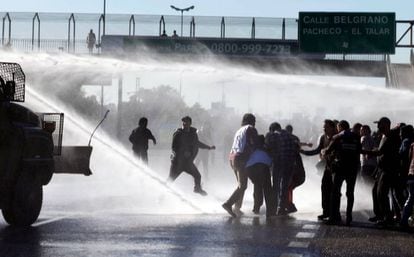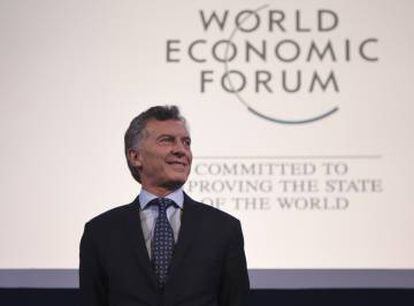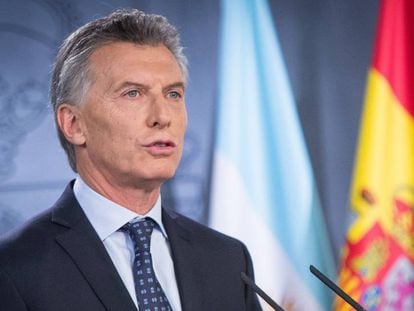Angry strikes overshadow WEF economic summit in Buenos Aires
After 16 months of supporting reforms, labor unions turn on President Mauricio Macri
Argentina’s powerful CGT labor union brought the country to a virtual standstill on Thursday after declaring a general strike, the first since President Mauricio Macri took office 16 months ago. The airport was closed, along with government offices, schools and universities, while hospital services were at a minimum.

With no public transport or taxis, the capital of Buenos Aires was deserted on Thursday morning, although over the following hours, some people followed the government’s advice and used their own cars to try to get to work.
In response, pickets were set up at several major intersections and entry points into the city, resulting in violent clashes with police, who had been given orders to keep roads open.
Thousands of supporters of Macri’s free market reforms gathered in Buenos Aires on April 2
The 24-hour strike comes in the middle of the three-day World Economic Forum on Latin America, which has brought some 1,200 delegates from the world of business and politics to Buenos Aires.
Strike leaders had said there would be no demonstrations or pickets, but a number of organizations staged a protest close to the Hilton hotel, where the WEF is being staged and which has been ringed by tight security.
Macri, who took office in December 2015, has removed currency and trade controls and cut government spending, including gas subsidies, which has pushed up home-heating bills. Recent figures show that one third of the country lives below the poverty level.
During his election campaign the president promised to bring back the foreign investment to Argentina that had stayed away for much of the mandate of his predecessor, Cristina Fernández de Kircher. He has inherited rampant inflation, dwindling central bank reserves and a wide fiscal deficit.

Addressing delegates to the WEF on Thursday, Macri said: “Argentina has been weighed down by many years of unfulfilled expectations, and this makes people angry. I want to channel that anger to build the future. Nothing we are doing will be of any use if we do not manage to substantially reduce poverty, although it could take decades to reach our goal of zero poverty.”
Argentina’s middle classes have been hard hit by Macri’s austerity measures, with growing numbers of people now living in the informal, or grey, economy. An estimated 1.5 million people have joined the ranks of the poor since Macri took over.
Argentina seems to be headed toward growing social conflict. In March, Macri came under intense pressure, prompting questions as to whether he had the political will to continue with his reforms in the run up to October’s legislative elections. His government has been put on the back foot, with the opposition staging street protests in recent weeks. In response, thousands of supporters of Macri’s free market reforms gathered in Buenos Aires on April 2.
English version by Nick Lyne.












































